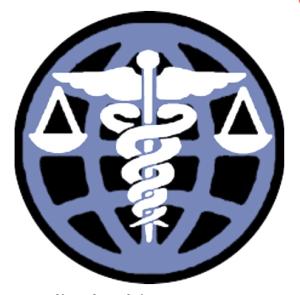 Considerations and Impacts, on the efficacy in Integrating Medical Ethics Studies into Law School University Curriculums:
Considerations and Impacts, on the efficacy in Integrating Medical Ethics Studies into Law School University Curriculums:
A brief Review
By
Michael A Massa, JD
July, 2024
Mr Massa, is a graduate of Capital Law Center, a Member of The American College of Legal Medicine, an Arbitrator and Writer.
This brief dissertation examines the significance and results of decisively incorporating medical ethics studies into law school curriculums.
History, Judeo-Christian Culture, and our myriad of other global beliefs as well as secular philosophies inform us of the timeless truths that surely impermeate all times and ages. Those common human experiences serve as a universal moral compass which guides us all.
The times change- but fundamental truths remain.
Including these global moral concerns and truths into learning curriculums, serve to providing a structural models. actual frameworks, steps and the academic rubrics involved in doing so.
The intersection of law and medicine is profound, which is one of The American College of Legal Medicine’s core precepts in realizing a deep understanding of human and moral decisions; which professionals in law and medical fields constantly encounter.
By inculcating such ethics studies in law schools, legal professionals can enhance their comprehension, thinking skills, and ethical decision-making-processes.
Patients and families, cared by medical/dental and ancillary professionals, as well as attorneys, all benefit.
This brief step-by-step analysis merely outlines and itemizes the successes and benefits of intertwining medical ethics with legal education, to foster a more ethically conscious legal profession.
Indicators:
Indicator 1:
Introduction and History
– Background information in the symbiotic relationship between law and medicine must be articulated and in most all law school curriculums. The personal opinion of this author is that “morality” and ethics cannot just be ‘learned” or taught, but rather, must be recognized, experienced, engendered, and practiced.. as part of our very lives.
– Rationale for integrating medical ethics education into law school curriculums must be palpable and underpinned by recent legal decisions, evolving notions of ethics, and and even cutting-edge medical diagnostics/conclusions. Ongoing Research is always part of that mix.
Indicator 2.
Theoretical Framework:
– An Overview of medical ethics and its relevance to legal practice.
– Theoretical perspectives on ethics education in law schools obviously must be nurtured and updated as time moves forward. Therefore, ethical perspectives will naturally evolve.
– Existing literature on the integration of medical ethics into legal education can only capture a contemporary window in time, regarding legal medical and social development.
Consideration 3:
Curriculum Development:
– Designing a medical ethics curriculum for law students
– Learning outcomes and goals of incorporating such medical ethics studies
– Approaches to teaching medical ethics in a strictly legal context.
Consideration 4: Pedagogical Strategies:
– Teaching
methodologies and techniques for effective integration
– Case studies and real-world scenarios to engage students in ethical reasoning
– Evaluation methods to assess the impact of medical ethics education on students’ competencies.
This may take place via experiential studies- if feasible, and even through related forms of distance education, such as hybrid, or synchronous learning type classes, etc
As one prime example, a Values/Ethics element is imbedded in all professional online legal and non-legal programs currently at Villanova University, in Philadelphia).
Both secular as well as religious-affiliated schools have the the moral societal imperative and ability to develop or maintain Values/Ethics infused curricula.
Indicator 5:
Professional Competence in Ethical Decision-Making:
– The practical influence of medical ethics education on shaping legal professionals’ moral reasoning.
– Enhancing critical thinking skills and ethical judgment in legal and medical practices.
– Legal and Medical case analyses demonstrating the positive outcomes of a combined legal and medical ethics education
Consideration 6:
Proffered Institutional Perspectives and Challenges:
– Culling Perspectives from law schools on incorporating medical ethics into the curriculum
– Overcoming challenges and barriers to successful implementation
– Collaborative efforts between law and medical schools to enhance interdisciplinary education
Consideration 7:
Future Directions and Recommendations:
– Potential future trends in integrating medical ethics education in law schools
– Policy implications and, outcome recommendations for stakeholders in legal and medical education
– Areas for further research and exploration in the field
Consideration 9:
Conclusion:
– Summary of key findings and contributions of the dissertation
– Implications of integrating medical ethics studies into law school curriculums
– Final reflections on the significance of ethical education in shaping competent legal professionals.
Through a concise analysis of the integration of medical ethics studies into law school curriculums, this dissertation aims to shed light on the transformative potential of ethical education in cultivating a more ethically conscientious legal profession.
By equipping future legal practitioners with a robust understanding of medical ethics, we can foster a culture of ethical excellence and moral integrity in the practice of law.
Law schools can assess the effectiveness of medical ethics education on student competency through various methods to ensure that students are gaining the necessary knowledge and skills to navigate complex ethical dilemmas in their future legal practice. The educational rubrics can certainly be established in a multi-disciplinary approach.
Learning from Law Professionals, medical professionals, and even rigious/secular professionals should always be part of the entire process.
Below are some of the strategies that law schools can affirmatively employ to evaluate the impact of medical ethics education:
1. **Assessment Tools**: Designing assessments such as exams, quizzes, case analyses, or research projects specifically focused on medical ethics concepts covered in the curriculum. Such components I don’t know can help measure students’ understanding and application of ethical principles.
2. **Ethical Decision-Making Models**: Presenting students with real-life ethical dilemmas or case studies that require them to analyze the situation, identify ethical issues, and propose solutions can assess their ability to navigate complex ethical challenges.
3. **Reflective Writing: Encouraging students to engage in reflective writing assignments where they critically analyze their ethical decision-making processes and personal values can provide insights into their ethical reasoning skills and self-awareness.
4. **Simulations and Role-Playing**: Incorporating simulations or role-playing activities that simulate ethical dilemmas in legal practice allows students to apply their knowledge in a practical setting and helps evaluate their ability to make ethical decisions under pressure.
5. **Peer and Self-Assessment**: Implementing peer evaluation or self-assessment mechanisms where students assess their own ethical reasoning skills and provide feedback to peers can promote self-reflection and peer learning in ethical decision-making.
6. **Feedback Mechanisms**: Providing timely and constructive feedback on students’ ethical analyses and decision-making processes can help them understand their strengths and areas for improvement in ethical reasoning.
7. **Surveys and Questionnaires**: Administering instruments such as surveys or questionnaires to students to gather feedback on the perceived effectiveness of medical ethics education in enhancing their ethical competence and critical thinking skills.
8. **Longitudinal Studies**: Conducting longitudinal studies to track students’ ethical development over time and assess the long-term impact of medical ethics education on their professional practice and decision-making.
By utilizing a combination of these assessment strategies, law schools can effectively evaluate the impact of medical ethics education and student competency.
This ensures that law school graduates are equipped with the necessary ethical skills to navigate the complex ethical landscape of medical and legal practice.
While assessment tools are valuable for evaluating the effectiveness of medical ethics education in law schools, they also have limitations that should be taken into consideration. Some of these limitations include:
1. **Subjectivity**: Ethical reasoning and decision-making are inherently subjective and complex processes. Assessment tools may not capture the full spectrum of ethical considerations and nuances involved in real-life ethical dilemmas, leading to a limited understanding of students’ ethical competence.
2. **Limited Scope**: Assessment tools often focus on assessing Current knowledge and understanding of ethical principles, but may not capture students’ ability to apply these principles in practical legal scenarios. This limitation may result in a gap between theoretical knowledge and real-world ethical decision-making skills.
3.**Standardization:
Developing standardized assessment tools for measuring ethical competence can be challenging due to the diverse nature of ethical dilemmas that legal practitioners may encounter. One-size-fits-all assessments may not adequately capture the individualized nature of ethical reasoning.
4. **Time Constraints**: Most Assessments typically have time constraints, which may pressure students to make quick decisions in ethical scenarios. This may not fully reflect their ability to engage in thorough ethical analysis and decision-making processes.
5. **Ethical Quandries**: Assessments may present simplified or contrived ethical dilemmas that do not fully replicate the complexity of real-world ethical challenges faced by legal professionals. This limitation may affect the validity and authenticity of the assessment results.
6. **Recall Bias**: Assessments that rely heavily on students’ recall of ethical principles or case studies may not accurately reflect their ethical reasoning skills in practical situations. Students may struggle to apply theoretical knowledge to real-life scenarios under exam conditions.
7. **Overemphasis on Competency**: Assessments tend to focus on measuring students’ ethical competency rather than their ethical sensitivity, empathy, or moral courage. These aspects of ethical development may be challenging to assess through traditional assessment tools.
8. **Cultural and Contextual Factors: Students’ cultural backgrounds, personal values, and life experiences can influence their ethical reasoning and decision-making processes.
Assessment tools may not always account for these individual differences, limiting the validity of the assessment results.
Acknowledging these limitations and complementing with assessment tools with other evaluation methods, such as reflective writing, case-based discussions, and simulations, can provide a more comprehensive understanding of the impact of medical ethics education on student competency in law schools.
*This bibliography includes a selection of key texts on medical ethics, legal ethics, and the intersection of law and medicine. This strives to provide further insights into the integration of medical ethics education into law school curriculums and the assessment of its effectiveness on student competency in ethical decision-making.
Bibliography:
1 . Wendel WB. Ethics and Law: An Introduction. Cambridge University Press; 2014.
2. Beauchamp, Tom L and Childress, James F. “Principles of Biomedical Ethics.” Oxford University Press. 2018.
3. DuBois, James M., and Burkemper, Jack L. “Medical Ethics Education: An Interdisciplinary and Social Theories Approach.” Springer, 2017.
4. Bernard, and Siegler, Mark. “Ethical Issues in Clinical Research.” Lippincott Williams & Wilkins, 2020, and Mink, Mark. “Ethical Decision-Making in the Legal Profession: A Framework for Ethical Competence.” Oxford University Press, 2019.
5. The Bible, New American Version 1984 (both Old/ New testaments); 2 Timothy 3:1-6., 6 Corinthians 9-10.
6. Pellegrino, Edmund D., and Thomasma, David C. “The Virtues in Medical Practice.” Oxford University Press, 2018.
7. Sabin, James E., and Daniels, Norman. “Medical Ethics and the Law: The Core Curriculum.” IEEE Computer Society, 2017.
8. Shapiro, Joel P., et al. “Ethical and Legal Issues in Neurology.” Elsevier, 2018.
9. Thomas, Murray. “Law and Ethics in Medicine: A Dynamic Partnership.” Routledge, 2020.
10. St Augustine of Hippo, “The City of God”, c. 413-426. Christian Bishop.
11. Veatch, Robert M. “The Basics of Bioethics.” Routledge, 2020
12: Value Based Learning, “GVV Initiatives”, Villanova University, Philadelphia, Pa.,
2020-2024.
















